MAPK Signaling

Activated MAPKs transduce the phosphorylation and activation of MAPK-activated protein kinases (MAPKAPKs), e.g. RSK, MSK, or MNK family, and MK2/3/5. There are three main MAPK families, signal-regulated kinase 1 and 2 (Erk1/2 or p44/42), the c-Jun N-terminal kinases 1-3 (JNK1-3)/ stress activated protein kinases (SAPK1A, 1B, 1C), the p38 isoforms (p38α, β, γ, and δ). ERK signaling is involved in cell division, migration and survival. p38 MAPK and JNK/SAPK pathways are activated by cellular stress. The p38 MAPK pathway regulates cell motility, transcription, and chromatin remodeling. JNK/SAPK signaling affects apoptosis and inflammation. Dysregulation of MAPK pathway results in tumorgenesis and other pathological conditions.
-
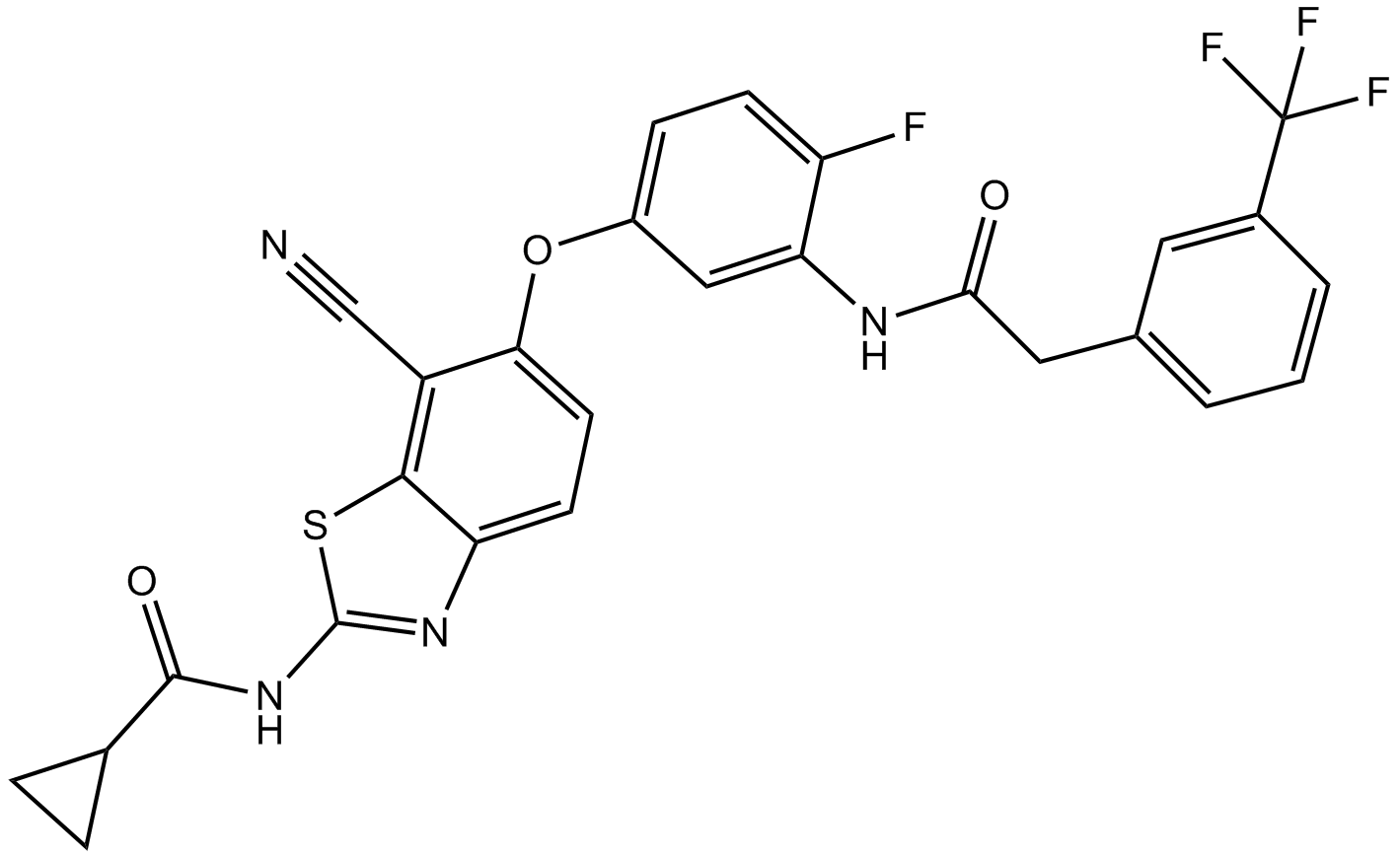 A8226 TAK-632Target: RafSummary: Pan-RAF inhibitor,potent and selective
A8226 TAK-632Target: RafSummary: Pan-RAF inhibitor,potent and selective -
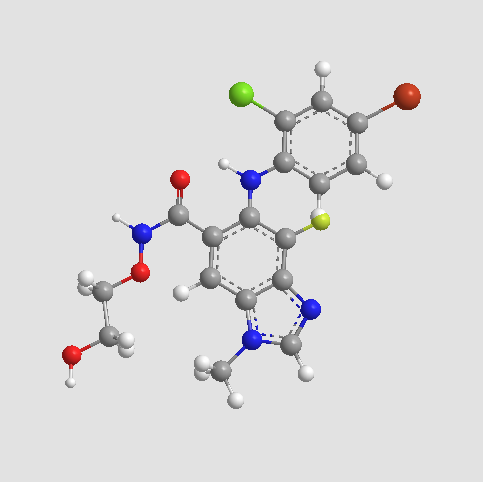 A8207 AZD6244 (Selumetinib)3 CitationSummary: MEK inhibitor
A8207 AZD6244 (Selumetinib)3 CitationSummary: MEK inhibitor -
 A8245 Sorafenib Tosylate1 CitationTarget: Raf|VEGFRSummary: Raf kinases and tyrosine kinases inhibitor
A8245 Sorafenib Tosylate1 CitationTarget: Raf|VEGFRSummary: Raf kinases and tyrosine kinases inhibitor -
 A8254 SB 2035809 CitationTarget: p38|PKBSummary: P38 MAP kinase inhibitor
A8254 SB 2035809 CitationTarget: p38|PKBSummary: P38 MAP kinase inhibitor -
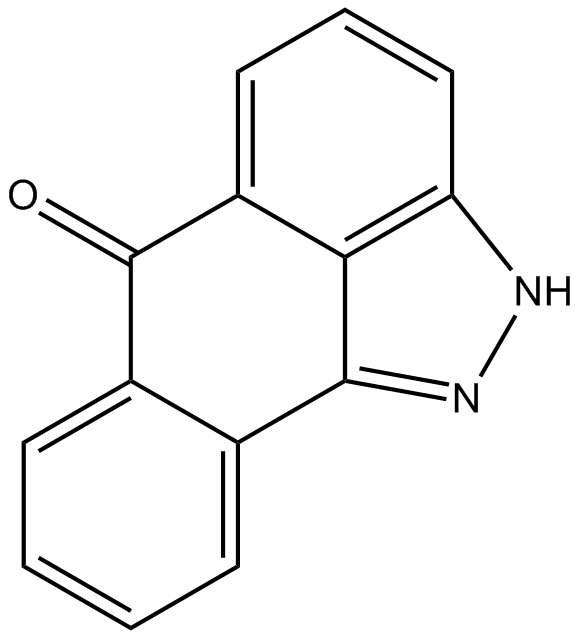 A4604 SP 6001257 CitationTarget: JNKSummary: JNK1/2/3 inhibitor
A4604 SP 6001257 CitationTarget: JNKSummary: JNK1/2/3 inhibitor -
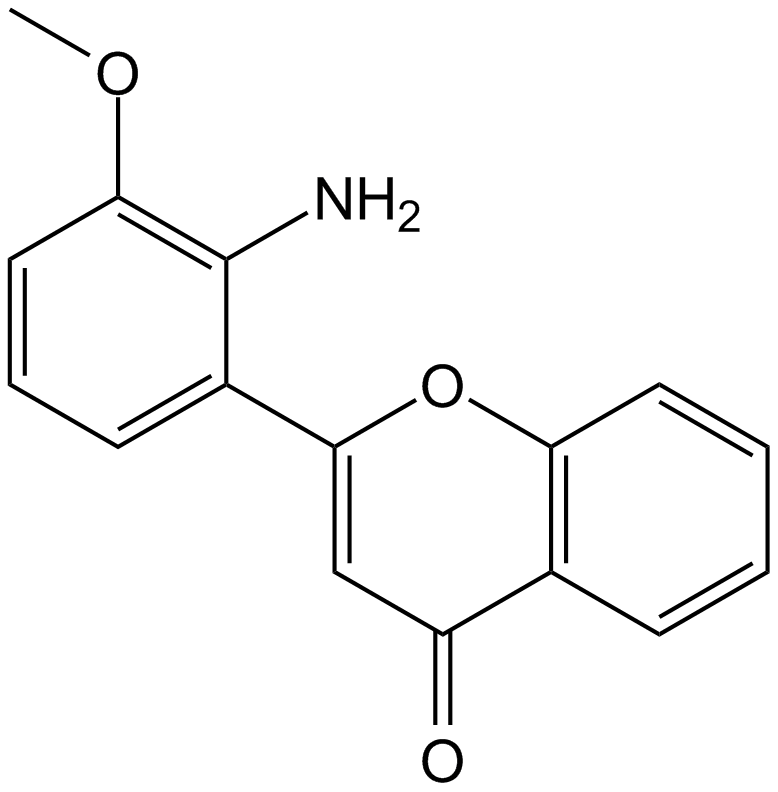 A1663 PD980599 CitationTarget: MEKSummary: MEK inhibitor,selective and reversible
A1663 PD980599 CitationTarget: MEKSummary: MEK inhibitor,selective and reversible -
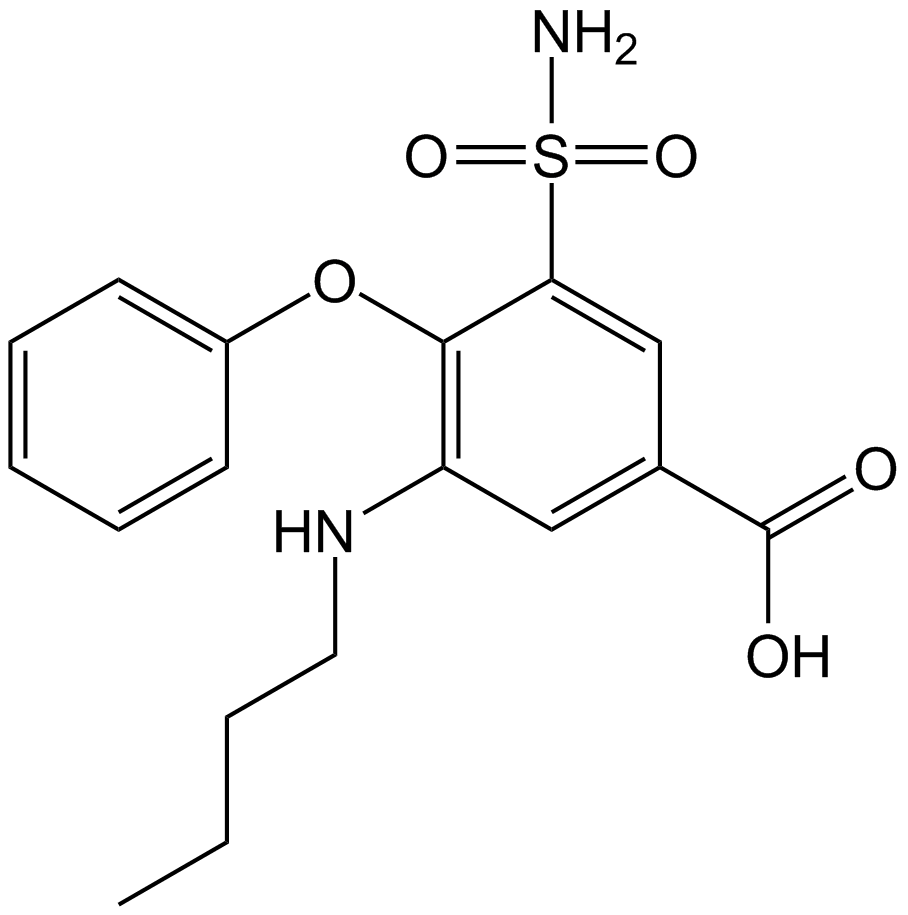 A1855 BumetanideTarget: Na /K /Cl- Symporters (NKCCs)Summary: NKCC cotransporter inhibitor
A1855 BumetanideTarget: Na /K /Cl- Symporters (NKCCs)Summary: NKCC cotransporter inhibitor -
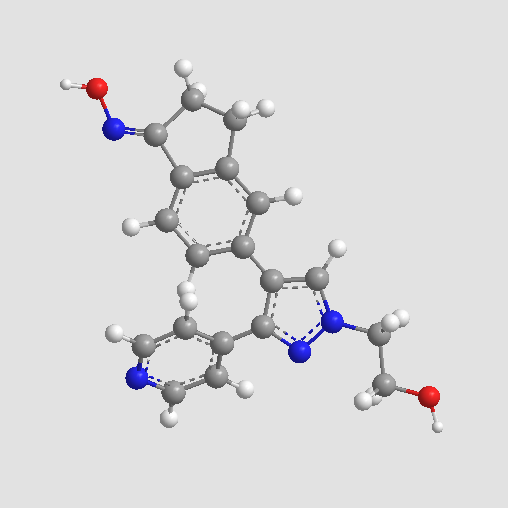 A5071 GDC-08791 CitationTarget: RafSummary: B-Raf inhibitor,potent and selective
A5071 GDC-08791 CitationTarget: RafSummary: B-Raf inhibitor,potent and selective -
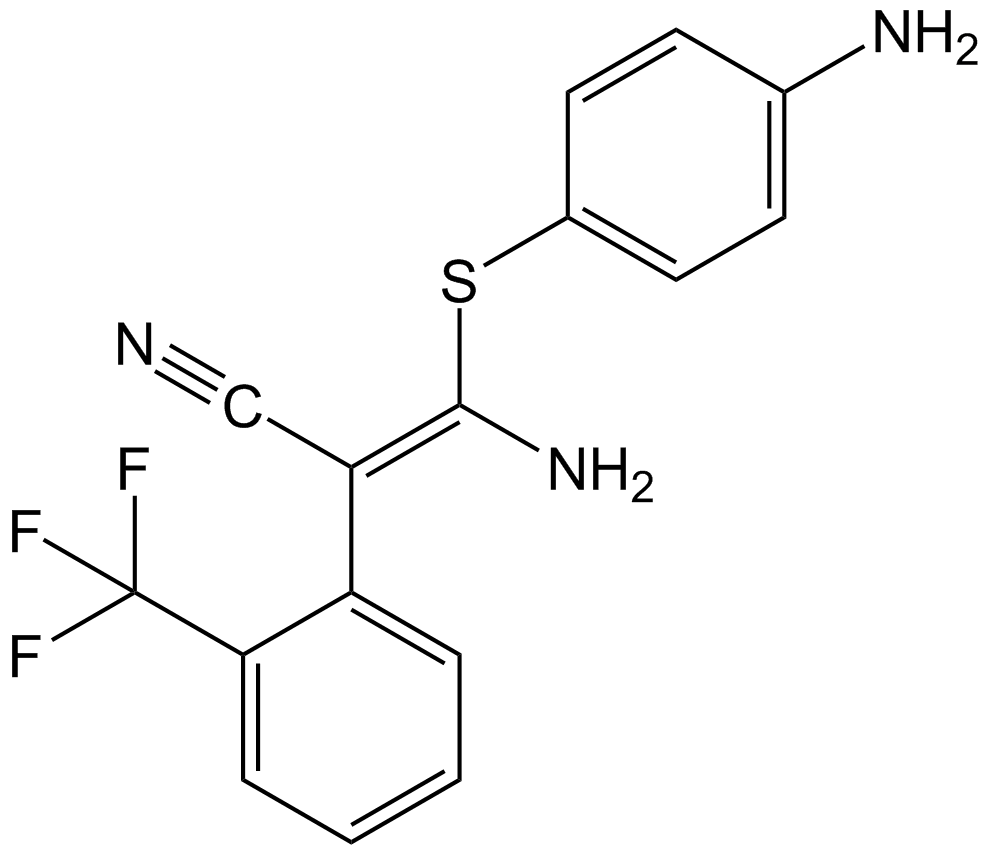 A1894 SL-3271 CitationTarget: MEKSummary: Selective MEK1/2 inhibitor
A1894 SL-3271 CitationTarget: MEKSummary: Selective MEK1/2 inhibitor -
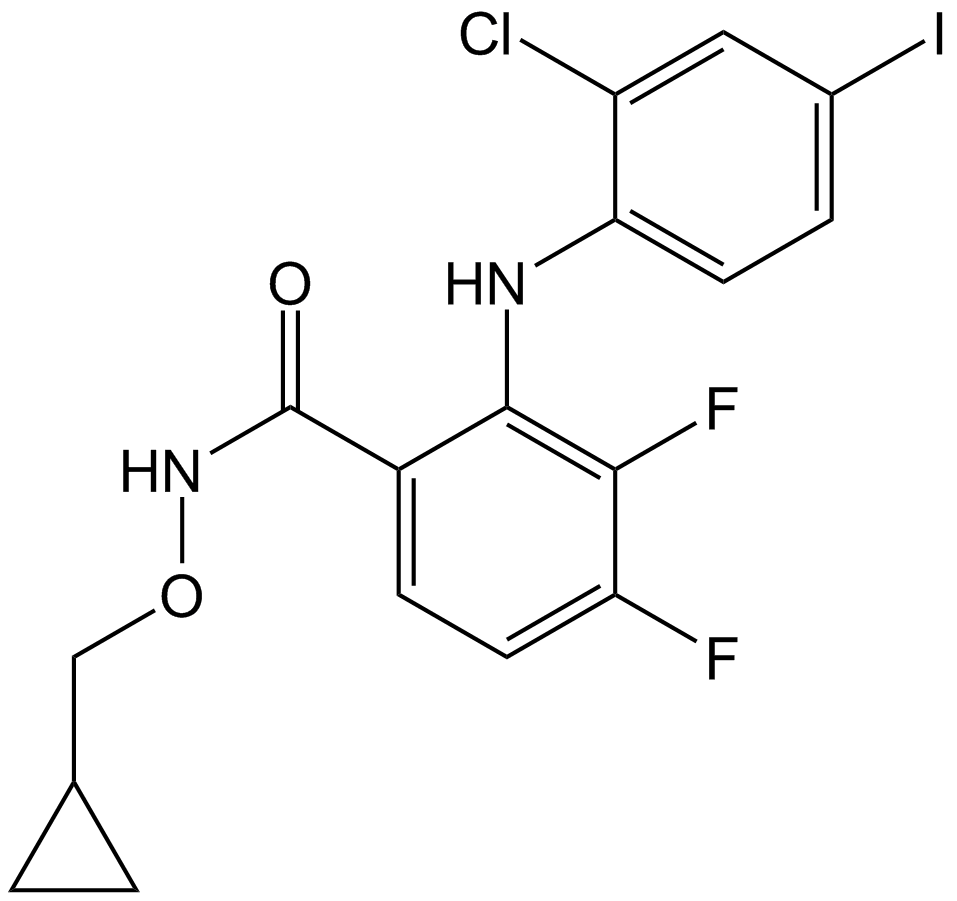 A1792 PD184352 (CI-1040)Target: MEKSummary: Selective MEK inhibitor
A1792 PD184352 (CI-1040)Target: MEKSummary: Selective MEK inhibitor

